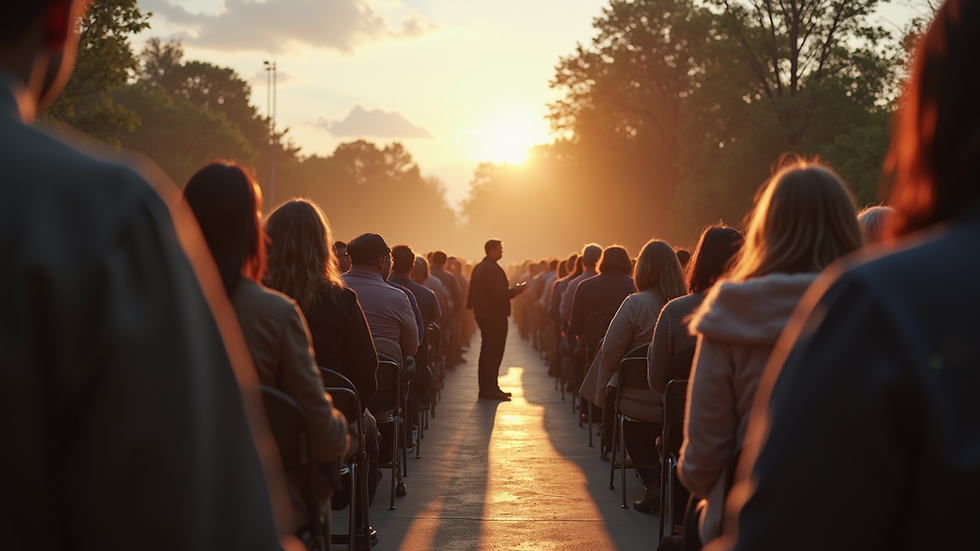Legal Rights and Community Empowerment with Justice
- Amber Hurley
- Aug 13, 2025
- 3 min read
In today's world, understanding legal rights is more important than ever. Many people feel lost when it comes to their rights, especially in their communities. This lack of knowledge can lead to feelings of helplessness. However, when individuals are empowered with knowledge about their legal rights, they can take action. This blog post will explore how understanding legal rights can lead to community empowerment and justice.
Legal rights are the foundation of a fair society. They protect individuals from discrimination, ensure access to justice, and promote equality. When people know their rights, they can stand up against injustices. This knowledge can transform communities, making them stronger and more resilient.
Empowerment starts with education. Many organizations offer resources to help individuals learn about their legal rights. Workshops, seminars, and online resources can provide valuable information. For example, local legal aid organizations often host free workshops on tenant rights, employment rights, and more.
When community members are informed, they can advocate for themselves and others. This advocacy can take many forms. It might involve speaking out against unfair practices, participating in community meetings, or even organizing events to raise awareness.
One powerful example of community empowerment is the rise of tenant unions. In many cities, tenants have come together to fight against unjust evictions and rent increases. By understanding their rights, these individuals have successfully negotiated better conditions for themselves and their neighbors.
Another important aspect of legal rights is access to justice. Many people face barriers when trying to access legal services. These barriers can include high costs, lack of transportation, or language differences. Community organizations play a crucial role in bridging these gaps.
For instance, some organizations provide free legal clinics where individuals can receive advice from attorneys. Others offer translation services to help non-English speakers navigate the legal system. By making legal services more accessible, communities can ensure that everyone has a voice.

Community empowerment also involves collaboration. When individuals come together, they can share resources and support one another. This collaboration can lead to stronger networks and a greater impact.
For example, community groups can partner with local businesses to provide resources for legal education. A local bookstore might host a book club focused on legal rights, while a nearby café could provide a space for meetings. These partnerships can create a sense of community and encourage more people to get involved.
Moreover, social media has become a powerful tool for raising awareness about legal rights. Many organizations use platforms like Facebook and Twitter to share information and mobilize support. This online presence can help reach a wider audience and engage younger generations.
In addition to education and advocacy, community empowerment also involves celebrating successes. When individuals or groups achieve positive outcomes, it is essential to recognize and celebrate these victories. This recognition can inspire others to take action and continue the fight for justice.
For instance, when a tenant union successfully negotiates a rent freeze, it is a moment worth celebrating. Sharing these stories can motivate others to learn about their rights and get involved in their communities.
As we explore the connection between legal rights and community empowerment, it is essential to recognize the role of diversity. Every community is unique, and understanding the specific needs of different groups is crucial.
For example, marginalized communities may face additional challenges when it comes to accessing legal rights. It is vital to ensure that resources are tailored to meet the needs of these groups. This might involve providing materials in multiple languages or addressing specific cultural concerns.
Furthermore, engaging with diverse voices can lead to more effective advocacy. When individuals from different backgrounds come together, they can share their experiences and perspectives. This collaboration can lead to more comprehensive solutions to legal issues.
In conclusion, understanding legal rights is a powerful tool for community empowerment. When individuals are informed about their rights, they can advocate for themselves and others. This advocacy can lead to positive change and a more just society.
By providing education, access to resources, and fostering collaboration, communities can empower their members. Together, they can create a stronger, more resilient society where everyone has a voice.
As we move forward, let us continue to support one another in our quest for justice. By working together, we can ensure that everyone knows their rights and has the tools to stand up for them. The journey toward empowerment and justice is ongoing, but with knowledge and collaboration, we can make a difference.


Comments